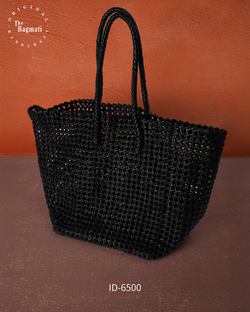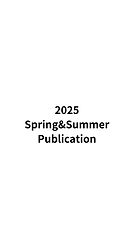

THE BAGMATI began in 2010, creating handmade basket bags primarily produced in the island nation of the Philippines, Southeast Asia. Just a 3.5-hour flight south of Japan, the Philippines’ tropical climate nurtures the local natural materials used in these bags. Cheerful artisans continue to handcraft each piece using age-old weaving and processing techniques passed down through generations, blended with global fashion trends and THE BAGMATI’s unique identity.

The key concept is “handmade.” From preparing the raw materials—harvesting plant fibers, bleaching, dyeing—to weaving the basket body, fabric work, and assembling with leather or textiles, every step of the process is done entirely by hand.

The primary production region is Bicol, in the southern part of Luzon Island, known as the country’s premier basket-making region. Home to the majestic Mount Mayon—often called the “Fuji of the Philippines”—the area’s volcanic soil and heavy rainfall provide ideal conditions for growing abaca (Manila hemp). As a result, abaca cultivation and crafting with natural fibers for baskets and furniture have long been established local industries. Each region specializes in different weaving styles, and from young women to the elderly, local artisans weave THE BAGMATI’s baskets from their doorsteps.
THE BAGMATI uses a wide variety of natural materials, all harvested or cultivated in the Philippines. These materials offer a warmth and uniqueness that synthetic alternatives simply can’t match. Here are some of the main materials used:
• Rattan: A climbing plant native to Southeast Asia, known for its strength, flexibility, and durability. It’s used in furniture and baskets. Processed in different ways: split rattan (cut into crescent-shaped strips), wicker (rounded inner core), and aralog (a heavier variety with visible nodes and natural texture for a rustic feel).

•Abaca (Manila Hemp): Indigenous to the Philippines and part of the banana family, abaca produces fine white fibers from the bark of its tree-like stalk. Known as one of the strongest natural fibers, it was a vital export for making ropes used in ships and machinery before synthetic fibers became widespread. Abaca has strong historical ties with Japan—before WWII, around 20,000 Japanese immigrants moved to Davao to start abaca plantations. Even today, Japanese yen banknotes contain abaca fibers.
•Raffia (Raffia Palm): A tropical palm whose leaves are processed into smooth, silky fibers and crocheted into baskets. It’s extremely lightweight, with a naturally glossy finish due to residual plant resins.
Each basket by THE BAGMATI is made using these materials, carefully selected to match the design, image, and intended use of the product. As every piece is handmade in the traditional way, it may take anywhere from half a day to a full day to complete a single basket body. Mass production is not possible—but that’s exactly what gives each bag its unique charm and warmth.
In addition to THE BAGMATI, its sister brand COTTO has also gained popularity. More recently, the brand has expanded its collections to include bags made with waxed cords, canvas, velour, and sheepskin, with production in India, a country rich in both materials and skilled craftsmanship.
THE BAGMATI will continue to share beautifully handcrafted bags—rooted in tradition, radiating ethnic charm, yet always in tune with modern trends.

Item
 |  |  |
|---|---|---|
 |  |  |
 |  |
(You can check the lineup and prices on our Instagram feed.)
Publication


Sehm international
Sehm International inc.
1-12-3,Tanotsu,Higashi-ku,
Fukuoka,Japan
Zip code 813-0034
TEL:+81-92-622-5221
Sehm International wholesales and distributes THE BAGMATI, a bag factory brand by hand made.
Copylight(C)2018 sehm group Co.Ltd.All Rights Reserved


